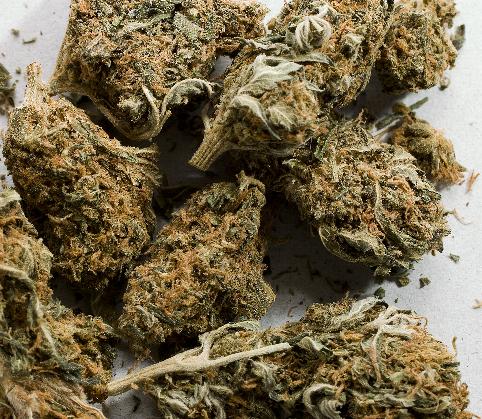 Ten years ago last month I suffered a very serious blood clot. It got lodged in my heart as a pulmonary embolism and part of it broke off and ended up in my right shoulder. It was the most painful experience of my life and it took nearly a week for the doctors to figure out what was wrong with a 30-year-old who was otherwise in good health.
Ten years ago last month I suffered a very serious blood clot. It got lodged in my heart as a pulmonary embolism and part of it broke off and ended up in my right shoulder. It was the most painful experience of my life and it took nearly a week for the doctors to figure out what was wrong with a 30-year-old who was otherwise in good health.
The pain was such that they were providing me with morphine combined with Percocet to combat it. As the pain lessened, I became increasingly aware of being doped up and eventually preferred a little pain to feeling “out of it.”
That experience taught me a number of things, but most notably that there are far more powerful narcotics that are used in this country than marijuana that are perfectly legal with a doctor’s description.
It has long been noted that marijuana provides relatively safe and less-than-addictive means to manage pain, treat nausea and increase appetite – all of which are crucial for the treatment and the comfort of people who experience terminal illness or chronic conditions.
However, portions of the medical community have been slow to grasp its benefits and that includes Dr. Sanjay Gupta, the doctor on CNN who was briefly considered for Surgeon General by President Barack Obama.
In a piece earlier this week, he confessed to changing his position on medical marijuana.
“Long before I began this project, I had steadily reviewed the scientific literature on medical marijuana from the United States and thought it was fairly unimpressive. Reading these papers five years ago, it was hard to make a case for medicinal marijuana. I even wrote about this in a TIME magazine article, back in 2009, titled “Why I would Vote No on Pot“, he writes. “Well, I am here to apologize.”
He said that he did not look hard enough or far enough. He failed to review papers from smaller labs and in other countries that have done “remarkable research” and he was “too dismissive of the loud chorus of legitimate patients whose symptoms improved on cannabis.”
He said, “I lumped them with the high-visibility malingerers, just looking to get high. I mistakenly believed the Drug Enforcement Agency listed marijuana as a schedule 1 substance because of sound scientific proof. Surely, they must have quality reasoning as to why marijuana is in the category of the most dangerous drugs that have ‘no accepted medicinal use and a high potential for abuse.’ “
Instead, he has now determined that they did not have the science to support their claims. He argued, “It doesn’t have a high potential for abuse, and there are very legitimate medical applications.”
Indeed, he noted, “Sometimes marijuana is the only thing that works.”
He gave the example of a woman in Colorado who was having 300 seizures a week since age 3. However, “Medical marijuana has calmed her brain, limiting her seizures to 2 or 3 per month.”
These are important claims because they are not coming from people who simply want to get high – and certainly we see a lot of those people in the legal system. The problem is that it is too easy to get a medical marijuana card and the system is not adopted into the medical system with stringent controls.
Dr. Gupta has come to believe, “We have been terribly and systematically misled for nearly 70 years in the United States, and I apologize for my own role in that.”
Dr. Gupta cites the letter from 1970 by Assistant Secretary of Health, Dr. Roger Egeberg, who recommended that marijuana be classified as a schedule 1 substance – something that has remained the case for nearly 45 years.
He notes, “My research started with a careful reading of that decades old letter. What I found was unsettling. Egeberg had carefully chosen his words.”
Dr. Egeberg wrote: “Since there is still a considerable void in our knowledge of the plant and effects of the active drug contained in it, our recommendation is that marijuana be retained within schedule 1 at least until the completion of certain studies now underway to resolve the issue.”
Dr. Gupta writes, “Not because of sound science, but because of its absence, marijuana was classified as a schedule 1 substance. Again, the year was 1970. Egeberg mentions studies that are underway, but many were never completed. As my investigation continued, however, I realized Egeberg did in fact have important research already available to him, some of it from more than 25 years earlier.”
Research in the 1940s found “marijuana did not lead to significant addiction in the medical sense of the word. They also did not find any evidence marijuana led to morphine, heroin or cocaine addiction.”
Dr. Gupta, in fact, notes that marijuana only leads to dependence in around 9 to 10 percent of adult users. By comparison, cocaine is about 20 percent, heroin 25 percent, and tobacco closer to 30 percent.
“There is clear evidence that in some people marijuana use can lead to withdrawal symptoms, including insomnia, anxiety and nausea. Even considering this, it is hard to make a case that it has a high potential for abuse,” Dr. Gupta concludes.
There is evidence that marijuana can harm the developing brain of teenagers. Studies suggest that regular use during teen years can lead to a decrease in IQ.
He notes, “Much in the same way I wouldn’t let my own children drink alcohol, I wouldn’t permit marijuana until they are adults. If they are adamant about trying marijuana, I will urge them to wait until they’re in their mid-20s when their brains are fully developed.”
Dr. Gupta found that most of the research into marijuana focused on documenting its harm, with only about 6 percent of the current U.S. marijuana studies investigating the benefits of medical marijuana. “The rest are designed to investigate harm. That imbalance paints a highly distorted picture,” he writes.
Part of the challenge is that, in order to study marijuana, you need marijuana and it is currently illegal to use it for study, except at a special farm in Mississippi located on the campus of Ole Miss.
The bottom line is that marijuana can have positive uses but its legal status is harming the ability of scientists, without the clear agendas of activists, to study its positive as well as negative impacts. For many, this is a travesty that we could easily rectify.
—David M. Greenwald reporting






Or we could just legalize it all together…
…instead of just for medical use.
[quote]Dr. Gupta has come to believe, “We have been terribly and systematically misled for nearly 70 years in the United States, and I apologize for my own role in that.”[/quote]
One could make the same claim about what proponents of water fluoridation are telling the public.
Marijuana in the water, now that is an interesting idea….
Legalise, decriminalise, or just have the good manners to ignore…
[quote]Marijuana in the water, now that is an interesting idea….[/quote]
Might mellow out some of us on both ends of the ideologic spectrum to beneficial effect ; )
Alan
[quote]One could make the same claim about what proponents of water fluoridation are telling the public.[/quote]
And I would counter that this statement applies to both proponents and opponents equally to the degree that they are willing to overlook the inadequacies of their own positions, while declaring that their side is entirely correct.
Never heard of a fight breaking out at a pot party…
Might create jobs in the snack food industry…
A bit worried about kids and the impact on motivation, however they seem to be getting all they want already. I would prefer we decriminalize it and stigmatize slackers.
Frankly
This is a banner day. We agree on something ! Now, if you can help me get the CC on board, I will host the first water only celebration day at my house ; )
Oops, from my above fragmented emoticon, it looks like I may have already been imbibing too much city water.
We are inching toward a sane move on marijuana. Legalize, tax, use most of the revenue for education and help for the addicted. Just think of the savings in law enforcement, jails, prisons. But most importantly, just think of the lives that will avoid ruin when this arbitrary, senseless, war on drugs winds down.
Color me in the legalize column on this issue, although my reason is somewhat different than those expressed above.
In the current environment marijuana, cocaine, heroin and the other illegal recreational drugs are supported by a single distribution channel. That means that the recreational consumers of marijuana are exposed to “up-selling” by the very same people who are providing them with their grass. By decoupling the distribution chains, much like the distribution chain for alcohol is decoupled from the distribution chain of marijuana, cocaine and heroin, I believe you would see a much greater proportion of recreational marijuana users simply stay with grass, much like recreational alcohol users stay with alcohol.
How is it that Gupta didn’t figure this out a whole lot sooner?
He just took the word of the FDA?
So much for talking heads.
What this town needs is a good pot club. We have something like ten bars but not one pot club. We could make picnic day pot only, no fights, lots of munchies.
Recently, I was at a luthier and guitar tech seminar where a survey was taken on a number of issues including the [b]legalisation[/b] of marijuana. [u]These guys are not rock musicians[/u]. By and large, they are crafts people and engineers,mostly male (95%), white(80%), median age around 55(guesstimations), many with and advanced degrees and several working in corrections or law enforcement. Of 200 respondents, only 5 opposed legalisation. A small sample, but possibly indicative.
One of the displays, coincidentally, was an acoustic guitar made from hemp.
Biddlin ;>)/
You seem to soft peddle the negative effects of pot.
First, regarding the harm pot can do to a teenager, it can reduce their IQ up to ten percent. That is huge.
Marijuana also contains carcinogens at seven (7) times the rate of cigarettes. Were you aware of that? That’s a huge number.
Third, most folks that smoke pot don’t use a filter. And they don’t even know what they’re getting … I met a guy who said he “fried his brain” when he bought some pot on Telegraph Ave in Berkeley, and it sent him off the edge. It took him weeks to recover, and he figures it was possibly laced with PCP.
Fourth, google marijuana and toxins.
Lastly, a new report says that FATALITIES from driving while stoned have TRIPLED. And if you’re stoned and drunk, it’s even worse. (These numbers are expected to continue to increase as more and more police departments test for impairment from marijuana.)